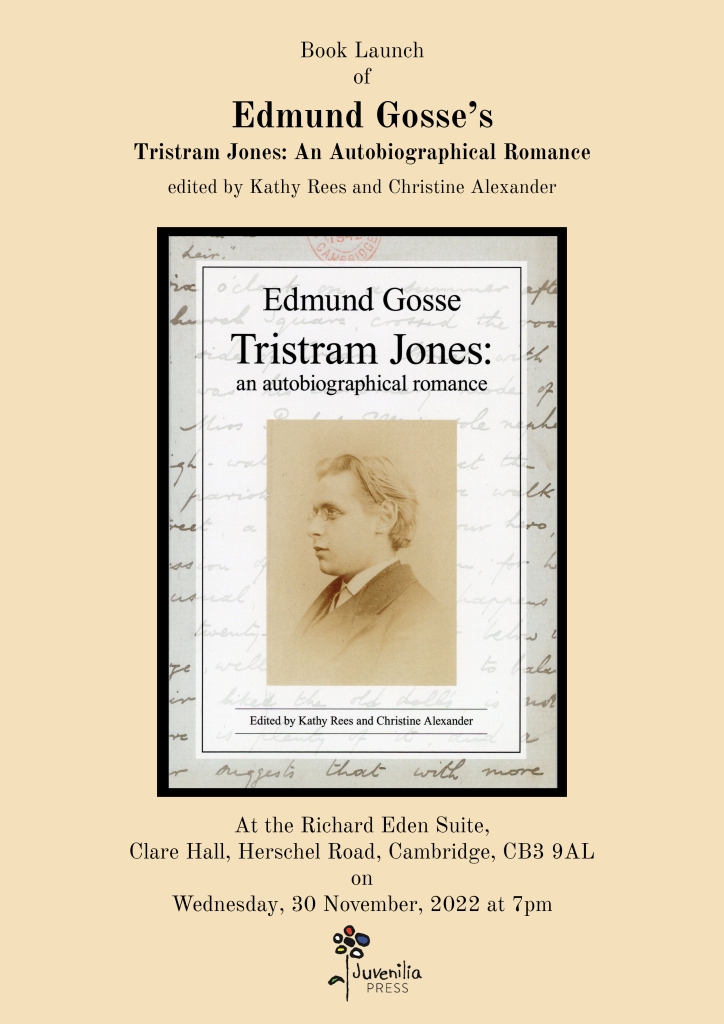We are pleased to announce the schedule for our forthcoming seminar series. This series will take place on MS TEAMS and a calendar invite will be sent out the day before each session to everyone who has registered. Please see the links below for registration forms and please ensure that you register by 5pm on the day before each talk is scheduled. All are very welcome. The series is being organised by Elizabeth Ludlow and Hilary Bedder. If you have any queries, then don’t hesitate to email Elizabeth.ludlow@aru.ac.uk.
5-6pm, Tues Feb 7th: Dr. Kathy Rees (Independent) ‘Edmund Gosse’s juvenilia: play, imitation, and apprenticeship’. Please click here to register.
5-6pm, MON Feb 20th: Alicia Beavis (City, University of London) Mrs F. E. M. Notley: A Subversive Woman Written out of History. Please click here to register.
5-6pm, Tues March 7th: Dr. Matthew Bradley (University of Liverpool) ‘The Prisoner’s Progress: Wilde’s De Profundis and Spiritual Autobiography‘. Please click here to register.
5-6pm, Tues March 28th: Mo O’Neill (University of Sheffield): ‘The Vegetarian Limits of Edward Carpenter’s Modernist Self Fashioning’. Please click here to register.
5-6pm, Tues April 18th: Gaia Lambert (Anglia Ruskin University) ‘Curating a Narrative: The Many Lives of Lizzie Siddal’. Please click here to register.
5-6pm, Tues May 2nd: Dr. Koenraad Claes (Anglia Ruskin University): ‘Two Great Moving Principles of Social Humanity: Walter Scott’s agonism and Romantic-era politics.’ Please click here to register.

